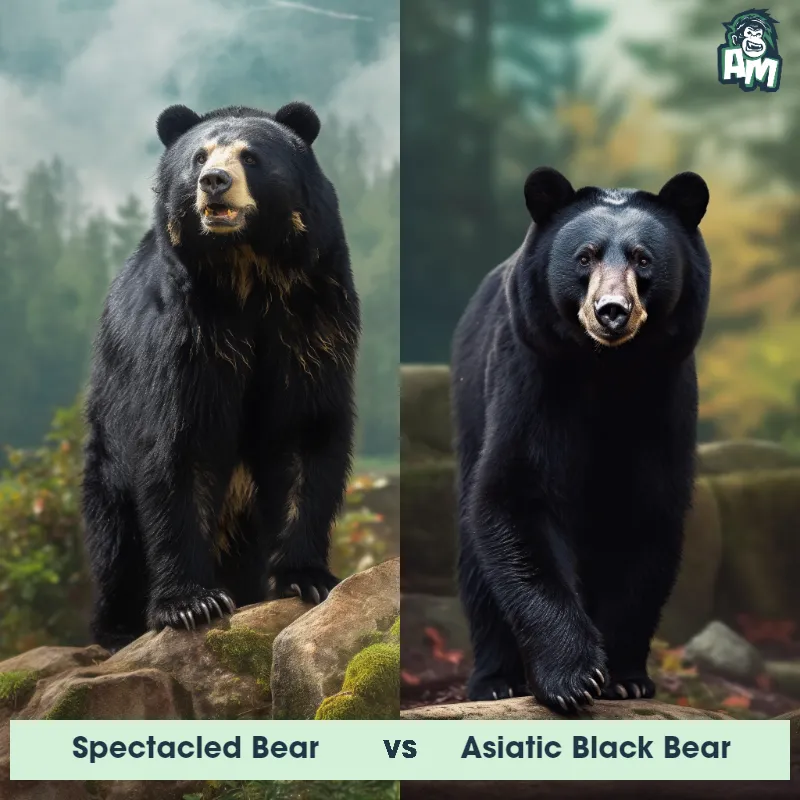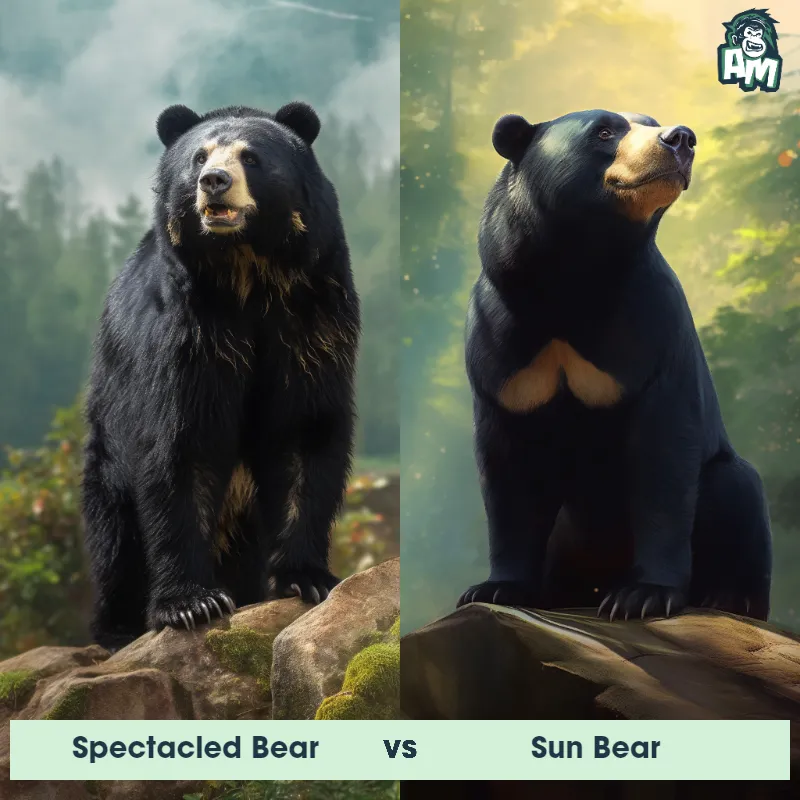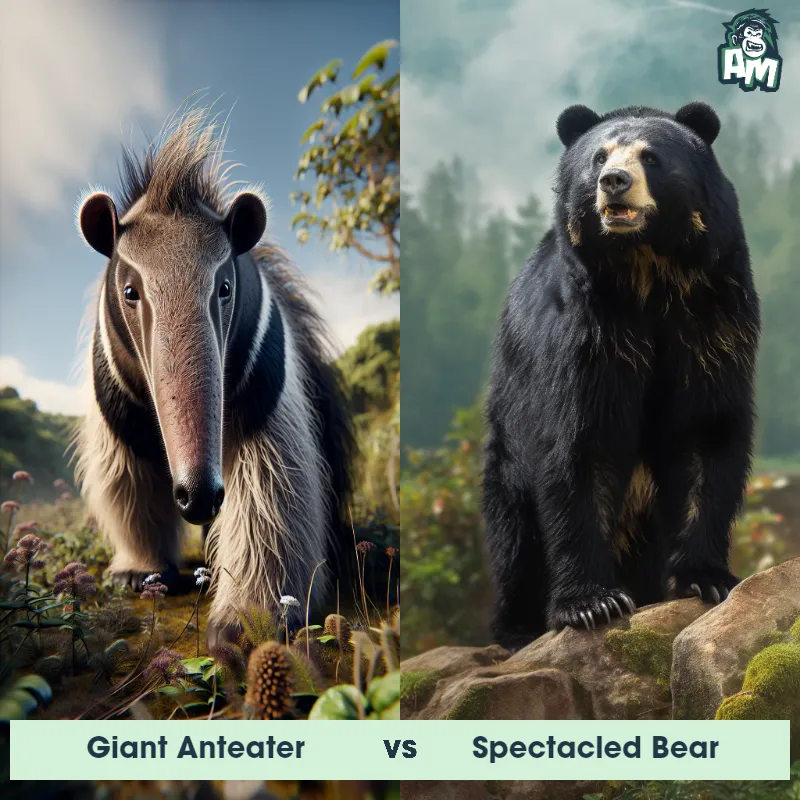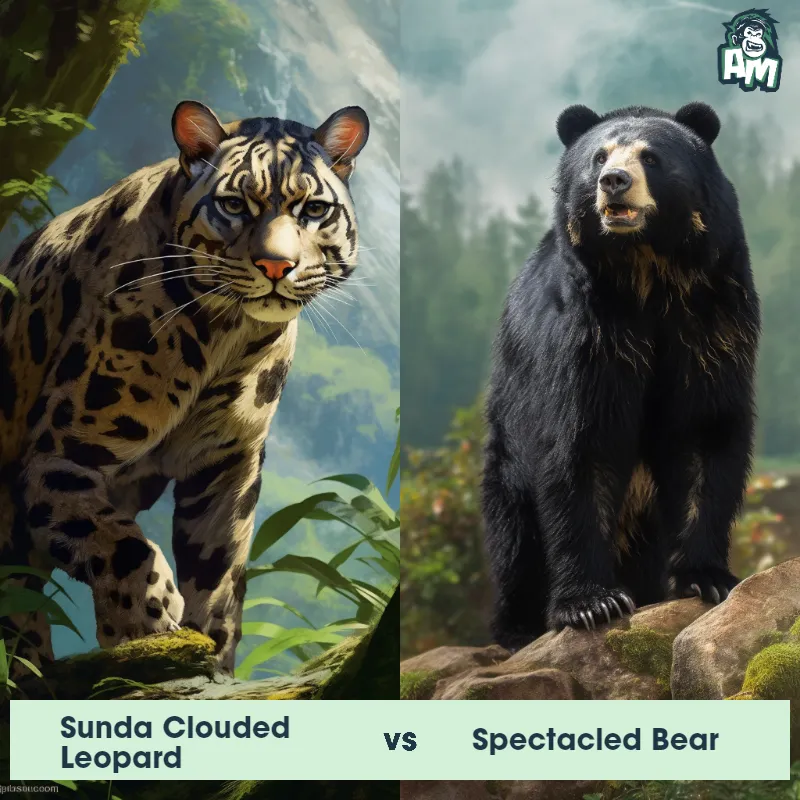The Spectacled Bear
The Spectacled Bear, also known as the Andean bear, is the only bear species native to South America. They are medium-sized bears, with males weighing between 220 and 340 pounds, and females weighing between 130 and 180 pounds. They are characterized by their distinct facial markings, which resemble spectacles and give them their common name. Their fur is usually black or dark brown, but can also be reddish or even blond. They have a stocky build, strong legs, and short, rounded ears. Spectacled bears have a diet that consists primarily of vegetation, including fruits, leaves, and bromeliads, but they may also consume small vertebrates and insects. They are excellent climbers and spend a significant amount of time in the trees, making their homes in the cloud forests and montane forests of the Andes.
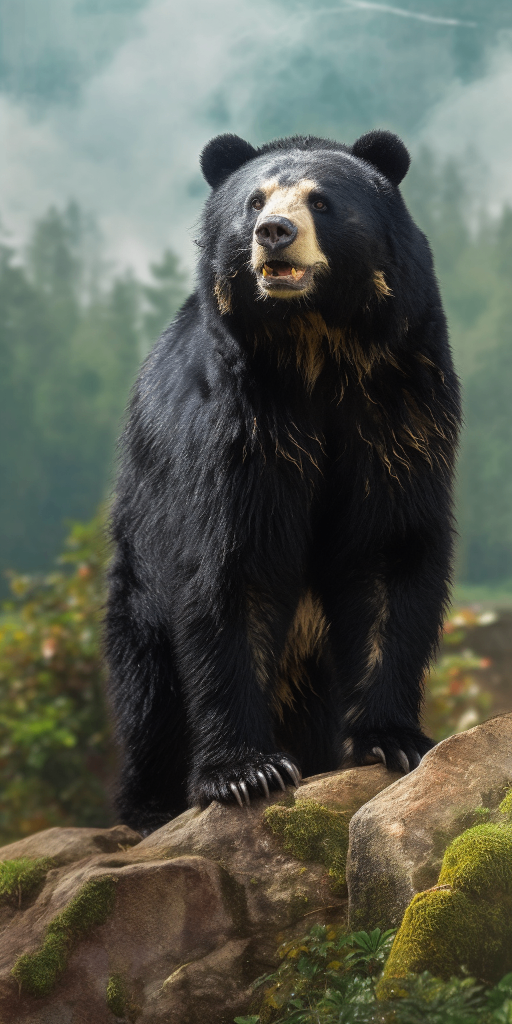
| Spectacled Bear | |
|---|---|
| Size | Up to 6 feet (1.8 meters) in length |
| Weight | Up to 340 pounds (154 kilograms) |
| Speed | Speed: 20 mph (32.19 km/hr) |
| Key Strength | Powerful jaws and sharp claws |
| Biggest Weakness | Slow movement and lack of aggression |
| Scientific Name | Tremarctos ornatus |
| Family | Ursidae |
| Habitat | High-altitude forests and cloud forests |
| Geography | South America |
| Diet | Herbivorous, primarily bamboo, fruits, and nuts |
| Lifespan | 20 years - 25 years |

The Spectacled Bear
The Spectacled Bear, also known as the Andean bear, is the only bear species native to South America. They are medium-sized bears, with males weighing between 220 and 340 pounds, and females weighing between 130 and 180 pounds. They are characterized by their distinct facial markings, which resemble spectacles and give them their common name. Their fur is usually black or dark brown, but can also be reddish or even blond. They have a stocky build, strong legs, and short, rounded ears. Spectacled bears have a diet that consists primarily of vegetation, including fruits, leaves, and bromeliads, but they may also consume small vertebrates and insects. They are excellent climbers and spend a significant amount of time in the trees, making their homes in the cloud forests and montane forests of the Andes.
Fun Fact: Despite being primarily herbivorous, Spectacled Bears have been known to occasionally prey on livestock such as sheep or goats, earning them a reputation as a nuisance by some farmers living in their range.
| Spectacled Bear | |
|---|---|
| Size | Up to 6 feet (1.8 meters) in length |
| Weight | Up to 340 pounds (154 kilograms) |
| Speed | Speed: 20 mph (32.19 km/hr) |
| Key Strength | Powerful jaws and sharp claws |
| Biggest Weakness | Slow movement and lack of aggression |
| Scientific Name | Tremarctos ornatus |
| Family | Ursidae |
| Habitat | High-altitude forests and cloud forests |
| Geography | South America |
| Diet | Herbivorous, primarily bamboo, fruits, and nuts |
| Lifespan | 20 years - 25 years |
Spectacled Bear Matchups
We use AI to simulate matchups between the Spectacled Bear and other animals. Our simulation considers size, strength, and natural predatory behaviors to determine the most likely outcome.
Spectacled Bear: Diet, Predators, Aggression, and Defensive Behaviors
What do Spectacled Bears eat?
Spectacled Bears are primarily herbivores, with a diet consisting mainly of plants such as fruits, cacti, leaves, and bamboo. However, they are also known to supplement their diet with insects, small mammals, and carrion.
Do Spectacled Bears have any predators?
While adult Spectacled Bears do not have many natural predators due to their large size and strength, young bears may fall victim to predators such as pumas and jaguars. Additionally, humans pose a threat to Spectacled Bears through hunting and habitat destruction.
Are Spectacled Bears aggressive?
Spectacled Bears are generally shy and elusive animals, preferring to retreat rather than confront potential threats. However, if cornered or provoked, they have been known to display aggressive behavior towards humans or other animals.
Do Spectacled Bears fight?
Spectacled Bears are solitary animals and do not typically engage in fights with one another. However, conflicts may arise between males during mating season or over territory, leading to aggressive encounters.
How do Spectacled Bears defend themselves?
When threatened, Spectacled Bears have several defense mechanisms they can employ. They may stand on their hind legs to appear larger, vocalize loudly to intimidate predators, or use their sharp claws to fend off attacks. In some cases, they may also retreat to the safety of a tree.
What is the biggest weakness of Spectacled Bears in a fight?
Despite their strength and agility, the biggest weakness of Spectacled Bears in a fight is their relatively small size compared to other large predators. This makes them vulnerable to attacks from larger animals such as pumas or jaguars, especially when they are unable to retreat or defend themselves effectively.
Fun Fact: Spectacled Bears are great swimmers and have been observed crossing rivers and lakes, even swimming long distances to find food or to navigate their territory.
Fun Fact: Unlike other bear species, Spectacled Bears have a specific noise, a unique "huff" sound, that they use to communicate and show aggression towards each other or potential threats.



